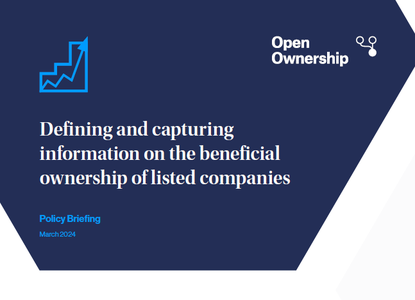Using beneficial ownership data for national security
Help us understand how you are making use of resources from the Open Ownership website by filling out this short survey
Publication type
Briefing
Publication
Sections
Research
Summary
This briefing sets out how beneficial ownership transparency can help mitigate a range of national security threats from state and non-state actors by integrating structured and interoperable beneficial ownership information with other data sources, and making this available to a range of different actors to effectively counter security threats. Impact requires the data to be usable and used, and may need complementary legislation which the data can help monitor and enforce.
Key points
- Anonymously-owned shell companies are a significant loophole in legislation protecting national security, and can make countries complicit in illegal activities outside their jurisdiction that negatively impact their national security.
- In order for BOT to address loopholes, reliable and usable BO data needs to be made available in a timely manner, and used by a range of government and non-government actors.
- The most effective way to do this is through implementing central registers.
- BO data is most valuable when combined with other data to enforce legislation, for instance, with government licensing data or lobbyist data.
- In order to combine data efficiently, and to build in automated checks that can raise red flags, BO data should be made available as structured and interoperable data.



